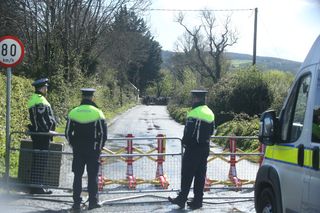Irish trade union head calls UK anti-strike legislation ‘draconian and counterproductive’
ICTU general secretary Owen Reidy
THE leader of the trade union movement here has said proposed new anti-strike legislation during a wave of industrial action in the UK is “draconian and counterproductive”.
General secretary of the Irish Congress of Trade Unions, Owen Reidy, is not fearful of a similar bill being proposed here, but is concerned for the organisation’s Northern Ireland members.
MPS backed the anti-strikes bill yesterday that requires key industries to legally ensure minimum levels of service during walk outs in England, Scotland and Wales.
The legislation means ministers could order work notices to be issued to striking workers, who could be sacked.
Ambulance workers in England and Wales who are members of the GMB union are expected to announce fresh strike dates on Wednesday.
Teachers in England and Wales are planning seven days of walkouts in February and March in a dispute over pay.
“The immediate concern is we have to make sure if it passes in Britain, it doesn’t affect members in Northern Ireland,” said Mr Reidy.
“We have a concern for Northern Ireland because obviously these issues are a devolved matter, but obviously we have no devolved government at the moment.
“Northern Ireland is seeing a lot of strikes and obviously if that legislation were to be proposed in Northern Ireland, I don’t think there would be a majority in the assembly for it. I don’t think there would be an appetite for it among the political class in Northern Ireland. Trade unions will resist.
“Among our membership, nearly every public servant is balloting or will ballot for industrial action over the next few weeks.”
He said there is “no sense or suggestion” it could happen in Ireland. Mr Reidy said derogations to allow services continue are usually agreed by unions and employers when there are disputes in emergency services here.
“We’ve always done that,” he said. “It’s best done locally where shop stewards understand the situation better than anyone.
"This is not the Tory government saying it is concerned about citizens. It is because it is ideologically opposed to unions.
“I think the public are with the trade union movement in Britain and see the basketcase that the government has got the state into after 12 years of austerity and cuts, and handling of the economy. I wish they spent more time trying to resolve the disputes rather than undermine strikes that way.”
The current public service pay agreement, Building Momentum, contains an industrial peace clause.
However, the Irish Nurses and Midwives Organisation recently revealed it is consulting with members on the possibility of industrial action in pursuit of legally-binding minimum staffing levels in hospitals.
Join the Irish Independent WhatsApp channel
Stay up to date with all the latest news














